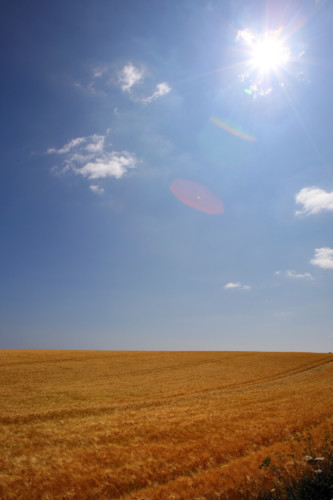Scottish farmers may be better off leaving fields fallow rather than growing cereals this summer.
That is the view of Jack Watts, the lead analyst at AHDB, the farmer-funded levy board tasked with providing farmers with clear, evidence-based information.
Speaking at the Farming Scotland conference in Carnoustie, Mr Watts said that growing barley was “relatively competitive” against wheat and oil seed rape.
“But that’s treating it as the best of a bad job,” he said.
“It’s not likely to make any money for a farmer. A farmer who wants to grow some kind of crop on his farm will grow barley whereas a farmer looking at it rationally… the economics would suggest he should cut back on cropping altogether and leave some land fallow.”
The acreage of spring barley is forecast to grow 10% in the UK this year but Mr Watts said that if prices remain at their current low levels, the expansion may not materialise.
“It will be interesting to see how that pans out,” he said.
“Given the level of price and weather risk associated with growing spring malting barley in Scotland, it may be much better to leave some fields bare because the returns don’t cover the costs or justify taking some risks.”
He added that there was already some anecdotal evidence that farmers were not “running out to crop every acre of their farm”.
Mr Watts emphasised that global weather and crop yields would ultimately influence markets and prices, but he also sounded a warning over the implications of falling whisky exports.
“The market is lagging with whisky in terms of export demand, particularly into Brazil,” he said.
“It’s a bit concerning. And that will impact on the confidence of distillers and how much spirit they want to lay down in the longer term.”
He added: “Overall, demand for barley could be lower, and there are still ample stocks from previous harvests so distillers may look to using that ahead of anything from the 2016 harvest.”
